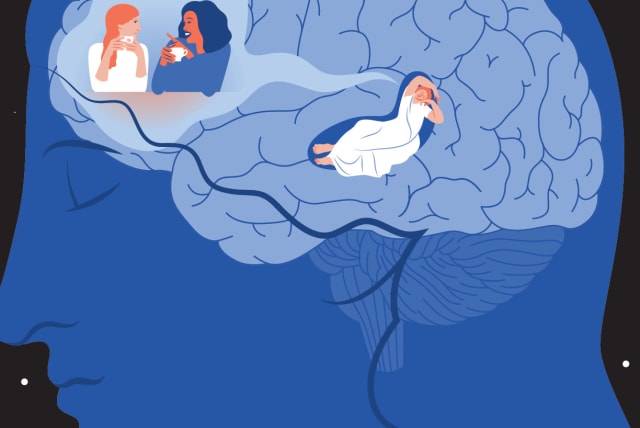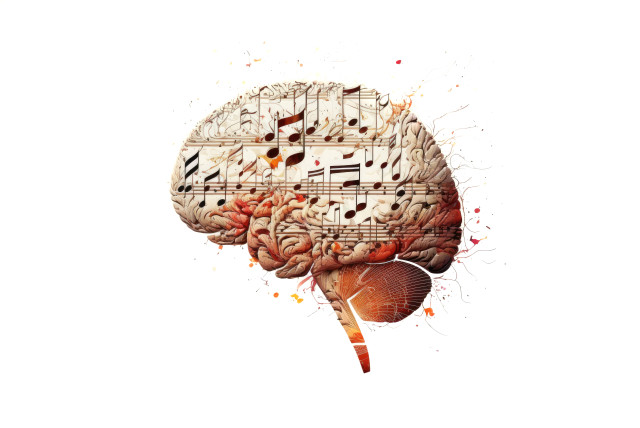How does bilingualism impact memory? - study

Bilingual people had a harder time identifying images attached to a word with homophones in both their spoken languages.
Language, experience, and memory are closely linked, and how this link impacts the thoughts and memories of bilingual individuals has been explored in a new study that was published on August 16.
The peer-reviewed study, published in the academic journal Science Advances, sought to understand if bilingual people had more trouble with recollection and identification compared to their monolingual counterparts.
Previous research has shown that homophones, words with similar pronunciation but different meanings, can directly impact someone’s ability to remember words. Words with more homophones have a generally slower recollection time, but the researchers wanted to explore if this trend extends to people recollecting words from two or more languages.
Testing language, memory, and identification
Scientists have used eye-tracking technology to study the activation of language in the mind in past studies.
Participants, after hearing a word, will often look to an image corresponding to that word. However, researchers found that people will also look at items with similar sounding names to the ones called out. For example, if they are asked to find a beaker, they may instinctively look toward a beetle or a speaker because the words feel similar.
Despite the aforementioned trend, bilingual people’s brains seemingly process words and connections differently. During the same test, bilingual people will look at objects with the same homophonic connections in all their languages. Research has also shown that access to an additional language can impact decision-making and creativity.
Episodic memory, meaning the memory of specific events and their contexts, is usually measured by words or images being shown to a participant and then participants recalling what they were shown or told at a later time.
Testing language and visual identification
The researchers, seeking to understand how language impacts episodic memory, tested 84 bilingual Spanish-English speakers and 42 monolingual English speakers in a visual search test while their eye movements were tracked.
In the test, names of English objects were called out and individuals had to identify the connecting image from a set of four images which included words with competing sounds. For example, the word ‘clock’ would play and the images would include a clock and the competing word ‘clown’ and an image of a competing word in the second language like ‘clavo’ (nail).
The researchers found that monolinguals had an easier time locating the correct image than bilinguals. This could be because they had less competing words to process amongst the images.
Bilingual people with a higher level of Spanish showed a preference towards images that competed in Spanish, while people with a low level of Spanish had the same results as monolingual individuals.
Monolingual people spent longer looking at English-competing images.
Testing language and memory
To test the memory recall of bilingual individuals, the researchers asked the participants to complete a recall test.
The researchers found that participants remember words better when there was a competitor word in English. The researchers suggested that this is a sign that memory recollection is attached to higher nonverbal IQ predicters.
“Our finding that within-language competitors are remembered better than control items is consistent with research showing that feature overlap with targets during visual search can facilitate encoding of competitor items into memory,” the researchers wrote in the study. “Our results show that phonological competition during visual search affects long-term memory. This adds to the small but growing body of evidence that coactivated labels during speech comprehension can have long-term consequences for higher-order processes such as memory.”
“Our study provides evidence of significant interactivity in the cognitive system, not only across different languages but also across domains of cognitive function.”
Jerusalem Post Store
`; document.getElementById("linkPremium").innerHTML = cont; var divWithLink = document.getElementById("premium-link"); if (divWithLink !== null && divWithLink !== 'undefined') { divWithLink.style.border = "solid 1px #cb0f3e"; divWithLink.style.textAlign = "center"; divWithLink.style.marginBottom = "15px"; divWithLink.style.marginTop = "15px"; divWithLink.style.width = "100%"; divWithLink.style.backgroundColor = "#122952"; divWithLink.style.color = "#ffffff"; divWithLink.style.lineHeight = "1.5"; } } (function (v, i) { });

